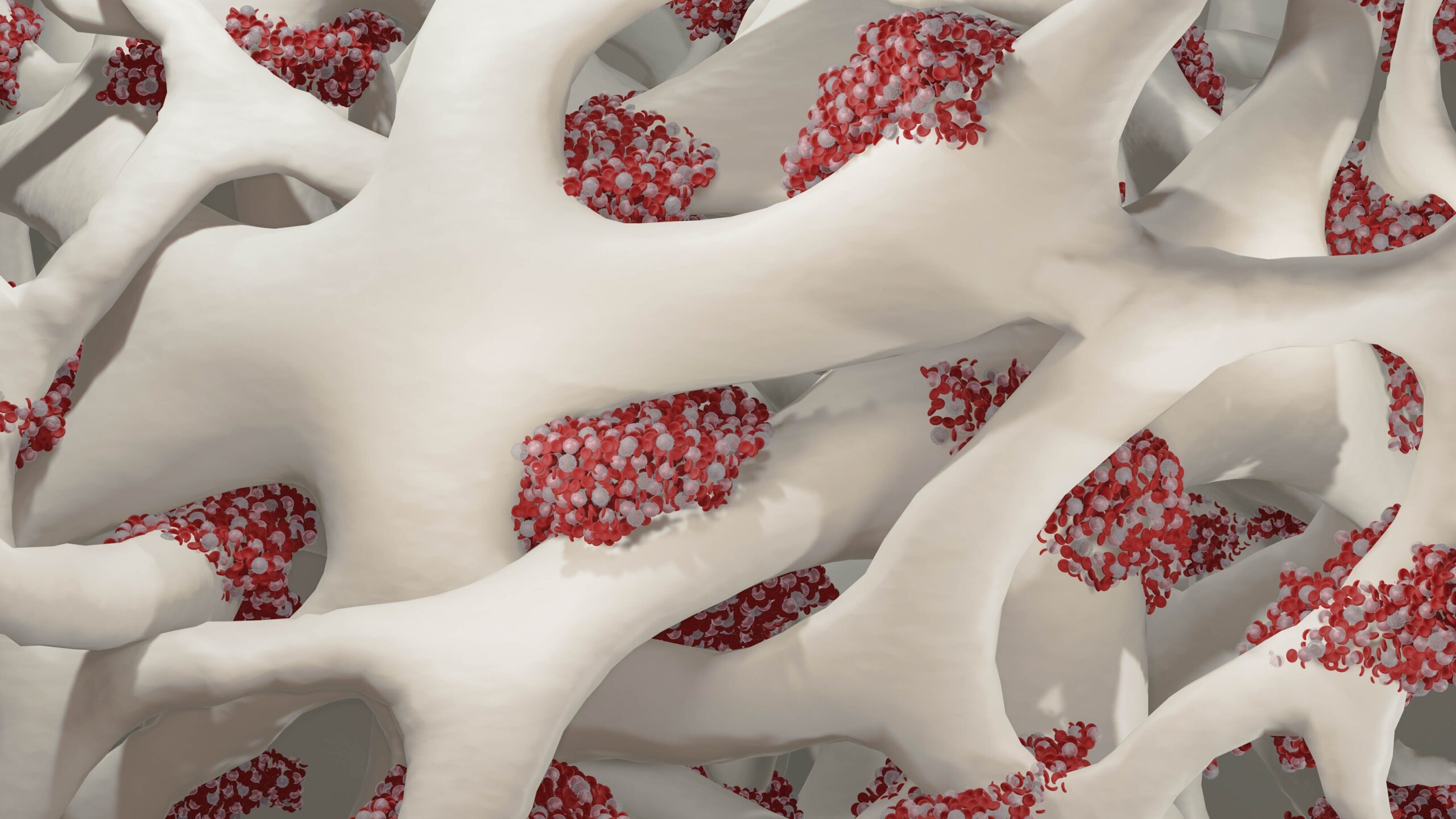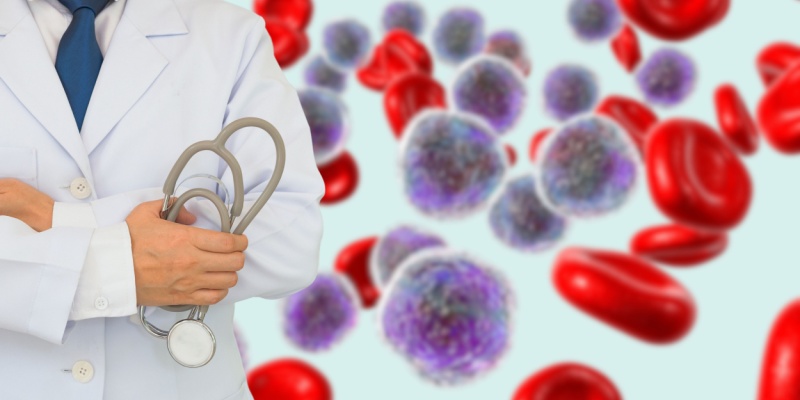
Myelodysplastic syndromes (MDS) cells activate NOTCH-MYC in bone marrow mesenchymal stem cells (MSCs), leading to increased levels of RN7SL1 that likely contribute to MDS disease progression, according to a presentation at the European Hematology Association 2024 Hybrid Congress in Madrid, Spain.
The study, presented by Juan Guo of Shanghai Jiao Tong University School of Medicine, stated that MSC-derived exosomes and exogenous RN7SL1 both promoted MDS clone proliferation and reduced cell apoptosis by activating retinoic acid inducible gene-I (RIG-I) and two interferon-stimulated genes, ISG-15 and IFITM1.
The researchers’ RNA sequencing found that NOTCH-MYC was triggered in combined MSC and MDS cell cultures, leading to increased RN7SL1 levels in the resulting exosomes.
RIG-1 knockdown appeared to promote apoptosis and decrease MDS cell proliferation, the authors reported. Additionally, overexpression of NICD1 or MYC in the MSCs of healthy controls led to increased tumor-supporting capacity via increased RN7SL1 in MSC-derived exosomes.
“The appearance of NICD1 in activated stromal cells was accompanied by upregulation of MYC target genes, which is consistent with MYC being a NOTCH transcriptional target,” Guo and colleagues wrote.
“This study provides new ideas for MDS treatment in the aspect of microenvironment,” they summarized.
Reference
Guo J, Chang C, Zhao S, et al. The role of MDS-MSC derived exosomes in regulation of MDS cloned cell malignant proliferation through RN7SL1/RIG-I signal. Abstract #P1878. Presented at the European Hematology Association 2024 Hybrid Congress. June 13-16, 2024; Madrid, Spain.






 © 2025 Mashup Media, LLC, a Formedics Property. All Rights Reserved.
© 2025 Mashup Media, LLC, a Formedics Property. All Rights Reserved.